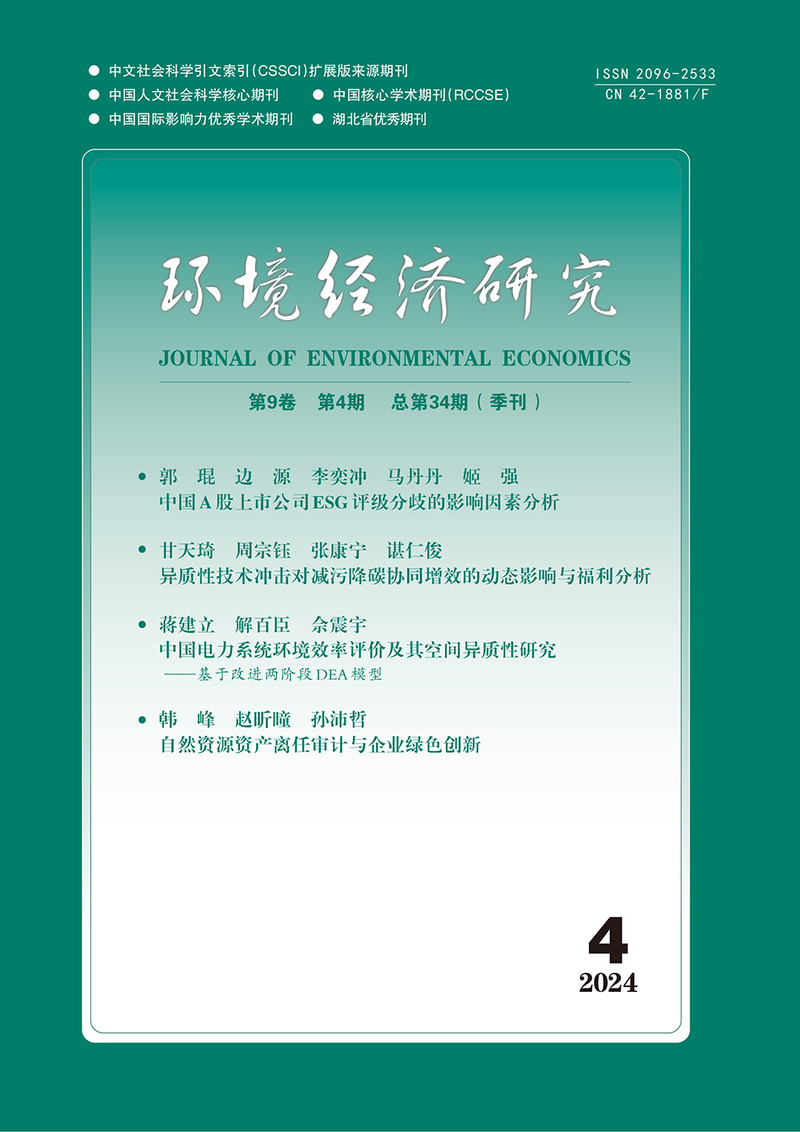摘要:全球气候变化与环境治理已成为人类命运共同体的重大议题。中国作为全球生态文明建设的重要参与者,其环境治理体系正经历深刻变革。2015年实施的新《环保法》标志着我国环境治理向法治化治理的范式转变。然而,政策执行层面表现出的制度张力可能促使企业采取策略性响应。基于此,本文以2010—2020年沪深A股上市公司为研究样本,依托新《环保法》实施的准自然实验,结合企业实际环境行动与文本挖掘下的环境信息披露数据,对企业环境责任履行中的“漂绿”行为进行了研究。研究发现,新《环保法》通过制度创新构建了强约束治理框架,但其执行过程中,合法性要求与技术标准及行业能力的结构性落差、执法强度与监管资源的现实错配、资源约束下的生存动机与制度压力的对立矛盾,共同催生了制度性张力。这种制度环境倒逼企业将环境责任履行停留在环境信息披露层面,而忽视环境行动的实质贡献,衍生出“多言寡行”的“漂绿”式环境规制应对策略。同时,研究还发现,长期导向投资者的参与以及企业的环境主动性可以在一定程度上遏制这种策略性环境责任应对方式,通过“外源性约束-内源性动力”的交互作用机制,为环境规制政策从强制合规向激励相容转型提供了理论依据。该研究为新《环保法》实施的效果评估提供了经验证据支持,揭示了企业在环境规制下的环境责任应对策略,阐明了环境规制效应可能的作用路径,并提出了策略性环境行为的可能抑制机制,旨在为绿色中国战略下完善新《环保法》、提升环境规制效应提供政策建议。
关键词:环保法;多言寡行;漂绿;规制效应
Environmental Regulation Pressure and Corporate Greenwashing Behavior
Li Sihai, Ma Wenqi
Abstract: Global climate change and environmental governance have emerged as critical issues for the human community with a shared future. As a key participant in global ecological civilization construction, China is undergoing profound reforms in its environmental governance system. The implementation of the new Environmental Protection Law (EPL) in 2015 marked a paradigm shift towards legalized environmental governance. However, institutional tensions manifested during policy enforcement may incentivize strategic corporate responses. This study investigates corporate greenwashing behaviors in environmental responsibility fulfillment by analyzing actual environmental actions and text-mined environmental disclosures of Shanghai and Shenzhen A-share listed companies from 2010 to 2020, utilizing the new EPL implementation as a quasi-natural experiment. The findings reveal that while the new EPL establishes a stringent regulatory framework through institutional innovations, its enforcement has generated institutional tensions arising from three contradictions: structural disparities between legitimacy requirements and technical standards/industrial capabilities, resource mismatches in enforcement intensity and regulatory capacity, and conflicting priorities between survival motivations under resource constraints and institutional pressures. These tensions drive corporations to prioritize environmental disclosures over substantive environmental actions, adopting a more talk, less action greenwashing strategy to cope with environmental regulations. Notably, the study identifies that long-term oriented investor participation and corporate environmental proactivity can mitigate such strategic responses through an interactive mechanism combining exogenous constraints and endogenous motivations. This provides theoretical support for transforming environmental regulation policies from mandatory compliance to incentive-compatible approaches. The research offers empirical evidence for evaluating the new EPL's effectiveness, reveals corporate strategic adaptations under environmental regulations, clarifies potential pathways for regulatory effects, and proposes inhibition mechanisms for strategic environmental behaviors. These insights aim to inform policy improvements for the new EPL and enhance environmental regulation efficacy under China's green development strategy.
Keywords:Environmental Protection Law, More Words and Less Actions, Greenwashing, Effect of Regulation
